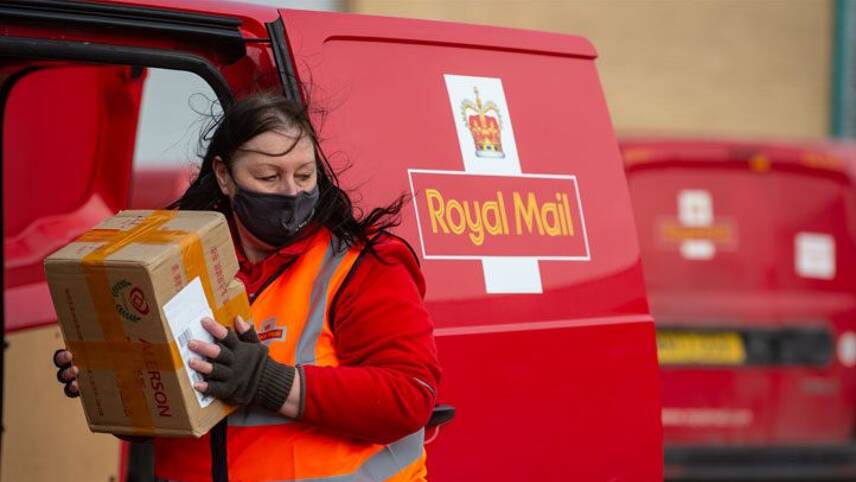Register for free and continue reading
Join our growing army of changemakers and get unlimited access to our premium content

Royal Mail is one of the UK's biggest fleet operators and has the biggest "feet on the street" workforce
The firm has today (18 February) unveiled plans to fit telemetry technology across 11,000 small Royal Mail vans by the end of March. These systems monitor routes taken, braking, turning and acceleration. Such data is then used to produce regular reports on the actions drivers can take to improve efficiency and reduce fuel consumption – which, in turn, reduces emissions.
Royal Mail has already installed telemetry systems across 13,000 large vehicles. The firm attributes this move to 177,000 litres of fuel savings and 459 tonnes of CO2e savings since the start of 2019.
Trimble has been selected by Royal Mail as the provider of the new telemetry systems for small vans. It will also provide telemetry solutions for new Royal Mail vehicles; the company has pledged to ensure that all new vehicles will host the technology going forward, with immediate effect.
“As a company, we are committed to making changes to our operations that reduce our environmental impact,” Royal Mail’s chief engineer and fleet director James Baker said.
“The wide-scale expansion of telemetry in our fleet enables us to ensure our drivers are given positive feedback and training on how to drive in the safest and most environmentally-conscious way possible, while allowing us to continue to deliver letters and parcels safely, efficiently and responsibly.”
Net-zero calls to action
Royal Mail has been increasingly vocal about the need for more efficient transport and logistics systems in the UK in recent months, in recognition of the UK’s 2050 net-zero target. Transport is notably the UK’s most-emitting sector.
The firm was one of several large fleet operators to have urged Boris Johnson to use his Ten-Point Plan for the green recovery to bring the ban on new petrol and diesel car sales forward to 2030, along with the likes of BT, Tesco, Ikea, Heathrow Airport and Dixons Carphone.
Johnson did include this commitment in the plan. Sellers will still be able to offer second-hand petrol and diesel cars after 2030. Other vehicle types, including vans and motorcycles, are also not affected.
Royal Mail is also a member of The Climate Group’s EV100 initiative, which aims to make electric vehicles (EVs) “the new normal” by 2030. The initiative’s latest annual progress report, published this week, revealed that it now has 101 business members. Collectively, these businesses have rolled out more than 169,000 EVs to date, with 89,000 having been rolled out in 2020 alone.
Sarah George


169,000 evs, which represents a requirement for electricity generation to replace all the fossil fuel which would have been used.
Is there any co-operation between the utilities concerned to ensure that such generation will be forthcoming?
The only CO2 saving, in any real quantity, that can be made is to supply all the power needed, from nuclear generation.
But I see little real enthusiasm to have really sustantial generation inn this sector. I wish it were not so, being from the very beginning, a nuclear enthusiast and scientist in this industry!
Richard Phillips